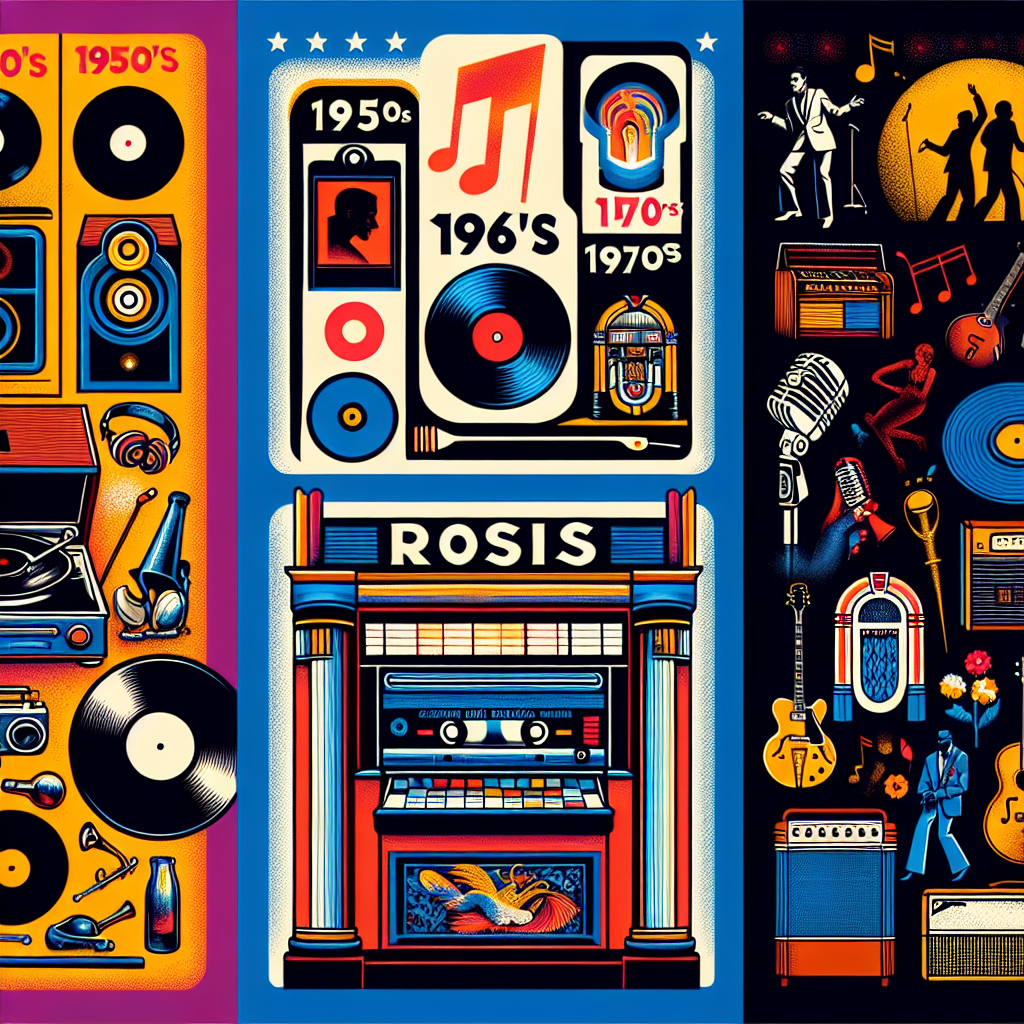Music has always played a significant role in shaping culture and defining generations. From the smooth melodies of the 50’s to the psychedelic sounds of the 60’s and the disco beats of the 70’s, each decade had its own unique soundtrack that reflected the social, political, and technological changes of the time.
The 1950s: The Birth of Rock ‘n’ Roll
The 1950s marked the birth of rock ‘n’ roll, with artists like Elvis Presley, Chuck Berry, and Little Richard revolutionizing music with their energetic performances and catchy tunes. This new genre of music quickly became a symbol of rebellion for young people who were breaking away from traditional values and embracing a more liberal lifestyle.
Rock ‘n’ roll also had a significant impact on fashion, with teenagers across America adopting the greaser look made popular by icons like James Dean and Marlon Brando. This rebellious spirit extended beyond music and fashion, influencing attitudes towards politics and society as well.
The 1960s: The Age of Counterculture
The 1960s saw a shift towards more experimental and politically charged music, with bands like The Beatles, The Rolling Stones, and Bob Dylan leading the way. This era was defined by its countercultural movement, which rejected mainstream values in favor of peace, love, and social justice.
Music played a key role in shaping this countercultural movement, providing anthems for protests against war and calls for civil rights. The rise of psychedelia also influenced fashion trends, with tie-dye shirts, bell-bottom pants, and long hair becoming symbols of rebellion against conformity.
The 1970s: The Disco Era
The 1970s brought about a new era of music with disco dominating the airwaves. Artists like Donna Summer, Bee Gees, and Gloria Gaynor provided the soundtrack for dance floors across America as people embraced a hedonistic lifestyle filled with glittering lights and pulsating beats.
Disco culture also had an impact on fashion trends, with sequins, platform shoes, and polyester suits becoming must-have items for those looking to embrace the glamorous disco lifestyle. Despite its critics, disco music represented a sense of escapism during turbulent times.
Conclusion
In conclusion, it is clear that music has played a crucial role in defining each decade from the 1950s to the 1970s. Whether it was rock ‘n’ roll challenging traditional values in the 50’s or disco providing an escape from reality in the 70’s, music has always been at the forefront of cultural change.
As we look back on these decades through their soundtracks, we can see how music not only reflects society but also influences it. From shaping fashion trends to inspiring political movements, music has the power to unite people across generations and create lasting memories that define an era.


Get involved!
Comments